- Rob Sheffield on the Beatles’ breakup and Peter Jackson’s upcoming film - September 2, 2020
- Craig Brown’s “One Two Three Four” - August 13, 2020
- Cirque de Soleil’s “Love” at the Mirage - June 30, 2020
Is it possible to write anything fresh and interesting about the Beatles in 2020? Improbably, Craig Brown has managed to pull off this feat in One Two Three Four: The Beatles In Time.
It helps enormously that Brown departs from the marching-in-strict-chronological order structure used, understandably enough, in many accounts of the band. Brown is the author of 99 Glimpses of Princess Margaret, as well as multiple parodies, and he brings a light (but not lightweight) touch to the proceedings. He’s willing to go down rabbit holes after interesting tidbits, to summarize long-drawn-out situations simply, and to share his own investment in what he’s discussing.
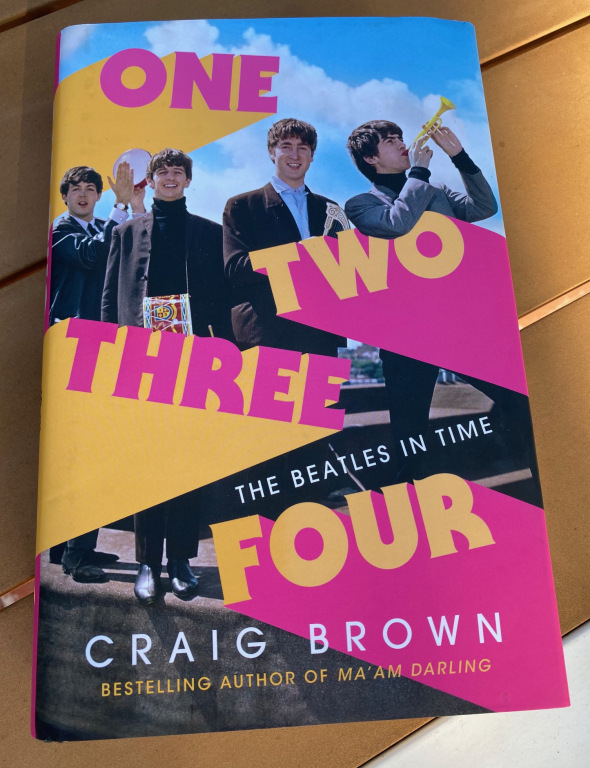
Brown’s writing and organizational style stands in particular contrast to that of Mark Lewisohn’s Tune In: The Beatles All These Years. God knows I’m grateful to Mr. Lewisohn for his indefatigable research and his readiness to detail pretty well everything that can be known about the band. But I also have to confess that I glazed over and found myself skimming through parts of his book. Lewisohn is not a sparkling stylist, and there is a dogged stateliness to his progress through “all these years.” In fairness to him, I have to admit that I’m at a point where the Beatles story is far from new to me, and that may well color my perception of any new book about them.
So I was skeptical when I picked up Brown’s book. He won me over on page 1, with his brief account of Brian Epstein and Alistair Taylor going to see the Beatles at the Cavern for the first time. The scene concludes:

“After the show, Taylor says, ‘They’re just AWFUL.’
They ARE awful,’ agrees Brian. ‘But I also think they’re fabulous. Let’s just go and say hello.’
George is the first of the Beatles to spot the man from the record shop approaching.
‘Hello there,’ he says. ‘What brings Mr. Epstein here?'”
And we’re off — we seem to be there with the people described (note the use of the present tense in that excerpt), waiting to see what will come of this encounter.
It’s that sense of openness, that recognition of multiple possibilities and the great unlikeliness of the Beatles’ success, that I found especially refreshing. At a few points Brown uses side-by-side narratives to emphasize what might have happened instead. Here he does it as part of an account of one evening in “Late November 1940”:
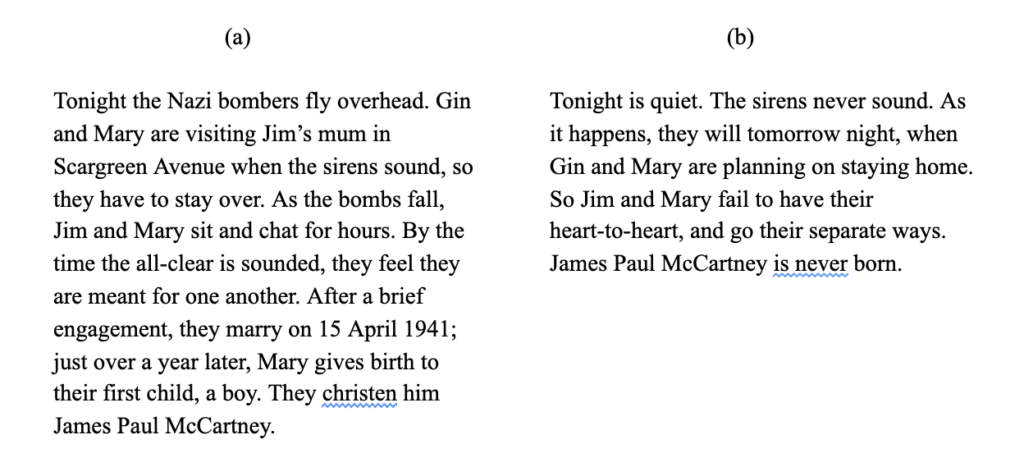
The greatest use of this split-screen effect in the book is Brown’s three-column breakdown of how the myriad people who have gone on record about Lennon’s assault on Bob Wooler at McCartney’s 21st birthday party have described it. (He also includes three statements by Lennon himself, given at separate times.) Seeing how differently everyone from Tony Bramwell to Philip Norman has detailed the assault and the extent of the injuries Wooler suffered illustrates more powerfully than a lengthy account could the reality that all history is interpretation.
Brown possesses an almost Wildean way with trenchant characterizations, for example: “Those of [Alex] Mardas’s ideas that worked were not his own, and those that were his own failed to work” and “Albert Goldman, the most merciless and hyperbolic of all John’s biographers.” Brown unerringly picks the best quotes too, as when he notes Alistair Taylor’s remark that Allen Klein had “the charm of a broken lavatory seat.”

Brown’s great with lists and footnotes as well. Here’s an itemization that reveals much about the chaos of the Apple Corps offices: “Visitors and employees alike walked off with all sorts of stuff: televisions, electric typewriters, speakers, cases of wine, fan heaters. One employee removed the lead from the roof on a daily basis, soon creating leaks that caused thousands of pounds’ worth of damage.”
And here’s Brown’s footnote to Peter Brown’s “unfeasibly vivid picture” of Lennon’s supposed sexual encounter with Epstein in Spain: “The memoirs of former Beatles office staff share this strange quality of divine omniscience with the memoirs of royal housekeepers and valets.”
Brown’s humor is in line with the Beatles’ own, a big reason why this book is so enjoyable. One Two Three Four includes the best account of Lennon’s punning sensibility I’ve read, and Brown’s descriptions of some of the contemporary Beatles-themed tours he’s gone on are not only revealing but intermittently hilarious. But he also captures the darkness of the story. Juxtaposing an early publicity photo of the Beatles with a candid snapshot taken during the late studio period, Brown notes: “The Beatles had aged with an almost macabre rapidity. In the five years from 1964 to 1969 they matured at a rate of knots, not only in the range and depth of their music, but also physically.”
One last note: Brown’s explorations of people on the edges of the Beatles story are extraordinarily revealing; some achieve a kind of “Eleanor Rigby” quality, as they recount what happened to those left in the Beatles’ wake. There’s Pete Best, of course. But who thinks of Jimmy Nichol, the drummer who subbed briefly for Ringo during the 1964 tour of Australia? His experience with fame seems to have blighted his life: though his former band held his position open, he came back from the tour determined to become a star and started his own band, which failed and marked the beginning of a long, sour decline. Then there is Detective Sergeant Norman “Nobby” Pilcher, the tireless enforcer of drug laws against 1960s musicians, eventually imprisoned for perjury and conspiracy to pervert the course of justice. However, the most moving portrait in the book is that of Brian Epstein; fittingly, the book both begins and ends with him. His centrality to the Beatles’ story has never, to my mind, been presented so clearly or compassionately.
In short: One Two Three Four is well worth your time, even if the stack of Beatles-related books you’ve read would reach to your head or higher if stacked up on the floor.

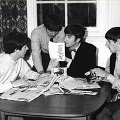
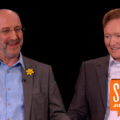
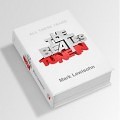
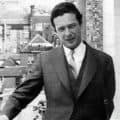

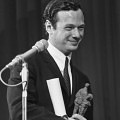
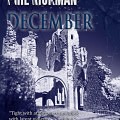
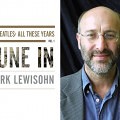


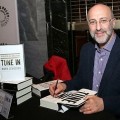

Is there any McLennon in the book?
.
Short and to the point. I like it.
Off topic, but the Recent Comments feature here seems to be borked.
Thanks, Sam. Not sure what is going on — seems to be a WordPress thing. I’ll see what I (or someone who knows more than I do) can do about it.
Brown is a true master of the pithy remark.
Not as such, Gretchen. I thought Brown did a good job dealing with the complexities of the Lennon/McCartney relationship overall, though. And I found his take on Brian Epstein really illuminating and humane, as I mentioned. This book gave me the best sense of Epstein as a person that I’ve gotten from anywhere.
Thanks for the review Nancy! I think I will read it.
Just wanted to add that I appreciate Mark Lewisohn, because “Tune In”, while maybe not exciting, is factual, and meticulously researched. There has been plenty of salacious crap written, some true, some false, but Lewisohn is trying to be completely factual. I want the truth, not rumors.
@Nancy, thanks for the review! I have that one on my list. Since there’s no e-book and I do have the not-quite-six-foot stack of hardcopy Beatles books yet to read, it’s out of my price range for now, but maybe they will release an e-version. I definitely like a little wry humor in my Beatles reading now and then — see Ray Connolly– so this sounds like a good ‘un. I look forward to reading it.
.
I’m currently reading Martin Shough’s “Truant Boy: Art, Authenticity, and Paul McCartney” and WOW. It’s a look at Paul McCartney’s oeuvre through the lens of art and music history, current events at the time he wrote his songs, and through contemporary criticism. Shough makes a lot of references that are esoteric to me, and I have spent a lot of time looking up his references (I never knew about Lisztomania! What a trip) and even consulting the dictionary now and then to decipher his fifty-dollar words — and I considered myself to have a pretty strong vocabulary. 🙂
.
Admittedly it is a blatant defense of McCartney and compares him to artists in many genres of creation. It does make comparisons between John and Paul’s work, not always to the detriment of John, though Shough does seem to have some suspicion of John’s solo career aspirations and lyrics, but most definitely pointed at the unfair comparisons in music criticism between the two. And for those who might say that nobody really disrespects Paul in media criticism circles anymore, Shough provides plenty of references to articles, some pretty recent, that do just that. I guess it makes me feel that I’m not crazy when I read anti-Paul bias in so many books written even recently. I’m looking at you, Tim Riley and Mark Lewisohn. Anyway, I’m only a quarter of the way through and have at least ten times now wanted to toss my e-reader in the air and let it float away on a cloud of “THIS.”
.
For example, Shough has been discussing criticism of Paul’s lyrics as lightweight or whatever, and this passage jumped out at me because of recent mentions of How Do You Sleep and I Know (I Know) here on HD:
“McCartney is perfectly capable of banal, awkward, or just plain ‘huh?’ lyrics. The same can be said of Lennon. The point is that when a commonplace lyric effect occurs in a McCartney song it can become an opportunity for a disproportionate contempt which is almost hysterical in tone. Such an unreasonable prejudice needs explaining.
.
The permission we (some of us) give ourselves to sneer at McCartney surely borrows some of its sanction from Lennon’s public example (e.g., How Do You Sleep?) during the tension of their ‘divorce.’ Lennon himself recognised this and regretted it. ‘The years have passed so quickly,’ he wrote in I know (I know) in1973, ‘and I know now what I have done,’ elliptically referencing McCartney songs in the lines ‘Today I love you more than yesterday’ and ‘I know it’s getting better all the time,’ set to music which is an unmistakable homage to I’ve Got A Feeling, the last truly joint Lennon & McCartney track to be released …”
.
So, er, “THIS.”
Wow thanks for the review. I will read it for the writing style. It sounds great.
@Kristy: “It does make comparisons between John and Paul’s work, not always to the detriment of John”
.
Not always, but most of the time? Hard pass. Do we really need another In Defense of Paul book? I thought Many Years from Now and Conversations with McCartney provided enough already. Will we ever see the day when John and Paul are not held up as great artists at the expense of the other? The fact that this is done ad nauseam is a testament to the fact that neither was as good on their own as they were as a team. Therefore, the answer is probably not.
Hah, that’s why I put the content notification in there, for John fans sensitive to possible critique. There are a few here on HD. 😀 The book doesn’t slam John SO FAR, but in direct comparisons between the two (i.e., their “ireland” songs, and their holiday songs) shows how when it comes to banality, John gets a pass whereas Paul gets derision. I mean, I don’t wanna see Paul glorified at John’s expense or a whole book of “hur hur John” jokes or jibes like I’ve read about Paul in several John books. Because they were friends and a team. But while this book hasn’t pushed those buttons for me personally, it surely won’t be everyone’s cup of tea.
.
But IMO, right now? Gimme all the Paul-is-awesome books. I mean, half the Paul biographies I’ve read were written by some dude who clearly didn’t care about Paul at all. Maybe someday we could start from equal ground and examine everyone on their own merits and without the historical spin. (All my opinion based off my own experiences in fandom, of course.) I’d love it if every book treated them as equals and complements — maybe the Craig Brown book Nancy is reviewing does? — but unfortunately we’re not there yet. Equity before meritocracy, as a friend of mine always says.
I read Truant Boy and thought it was very good and I remember that passage you quoted and was also like “Yes this” when I read it. 🙂
Particularly with regards to his lyrics and his overall creativity. Like you mention, it doesn’t help when half his biographies are written by people just looking to make a buck rather than people who are actually interested in their subject and so just repeat the same old stuff with the same old “yeah I didn’t give this much thought” interpretations. No not everything he wrote lyrically was profound but plenty of what John and George wrote were pretty banal as well. The bias comes in that when John writes so called “nonsense” many immediately look for “deep meaning” because hey it’s John he’s deep, right? Whereas with Paul they just assume it really is nonsense. ”
Like if John wrote Monkberry Moon Delight my person opinion is that many would immediately note the surreal nightmarish imagery of the lyrics and how they related to events that were going on around the time they were written(this was around when all the lawsuits were going on, the end of the Beatles, etc). It’s that Paul’s lyrics tend to be nitpicked over and the tiniest weaknesses often exaggerated because they are assumed to be weak and meaningless and John’s are assumed to meaningful so a weak word choice or repetition is often given a pass or at least not mentioned. I read a great joint research paper done by these three professors, at different universities in different countries, which did a study of the language of John, Paul and George’s lyrics while in the Beatles, with charts and everything, so it was as scientific as something involving words could be. LOL Unfortunately I had the link saved in a “Notes” program and that program stopped working so I can’t open them anymore. Hopefully I’ll come across it again some day, it was interesting.
As Christmas songs go, I prefer Wonderful Christmas Time. Happy Xmas(War is Over) is okay but mainly I find it dirgelike and cloying, not that Xmas songs need to be upbeat(Silent Night isn’t exactly a party ). So I’d rather have something like Wonderful Christmas Time stuck in my head, because IMO it’s more interesting musically. I’m not saying it’s some sort of epic classic but it just has more interesting things going on musically.
I do think Lady Madonna is probably not quite as straight a lift as Stewball is, I mean Stewball is pretty much the same music, just with different lyrics, I think Lady Madonna is more “in the style of Bad Penny Blues”, which isn’t to say it’s not pretty obvious where the influence came from. Xmas is sort of the opposite of Golden Slumbers, Paul had the lyrics from the book but didn’t know the music so he made up his own music, Xmas uses most of the music and makes up new words. 🙂
“A.k.a. “Happy Stewball (War Is Over)” ;)… ” Maybe someone could do a mashup? LOL
@Kristy, I totally agree about the Paul biographies. Most of them are by people obviously just in for a quick buck.
.
I downloaded the Craig Brown book at the beginning of the pandemic, because I read one or two excerpts on a newspaper site, which I found promising. Well…. it is not bad, but I felt his style got tiring after a while, and yes, again, it is very Johnandyoko centric. In the end I got the impression he had a number of old articles and coupled them with his recent visit to the Beatles sites in Liverpool, making fun of the fandom industry ( with justification, but he is of course also part of it). Must check again about the Brian Epstein part though.
So with John it’s “critique” but with Paul it’s anti-Paul bias. Gotcha. Yeah, there a few John fans here, exactly a few. Me and some McLennon girl. That’s sad. Wut? Happy Xmas pwns Wonderful Christmastime. Blech.
“So with John it’s “critique” but with Paul it’s anti-Paul bias. Gotcha.”
.
There is a difference in tone between critique and bias, as most people who can read things critically will understand. I have attempted to reply in good faith regarding what the book is about. If every effort I make will be met with derision, then just avoid the book, for heaven’s sake.
.
@Jesse — I couldn’t find an e-book! On Amazon, at least. I’ll keep an eye out. Thanks for further thoughts.
@Kristy, I got mine from amazon, but I am in Germany… don’t know why they do not make it available as an ebook in the US.
I liked “Happy Xmas” the first time I heard it…when it was called “Stewball.” 😉
A.k.a. “Happy Stewball (War Is Over)” ;)… A very nice song about a racehorse.
I wasn’t around in 1956 to hear “Lady Madonna” for the first time, aka “Bad Penny Blues”. So what, folk songs and traditional songs are fair game, ask any folk artist. My point is, getting a root canal is preferable to having the refrain from “Wonderful Christmastime” stuck in my head.
I’ve just started the audiobook, and while it seems worth a listen, I got thrown into anger by a couple of incredible silly mistakes – calling Nems “north east music stores”, for example. I would’ve thought there are certain facts that no one ever makes mistakes on. I might be being too hard on the author though…
Nancy, belated thanks for this review! I bought the book on the strength of your recommendation and am really enjoying it. Brown does an excellent job of helping me, a Millennial, get a better understanding of what Beatlemania must have been like than any other author I’ve read. Most everyone else describes it as a tiring triumph; Brown shows it as being bizarre, frightening, silly, and traumatic. I feel as if I’m just now understanding a key part of why the Beatles circa 64 seem like people one might actually know, but by 68, they’re not.
.
Brown is also very good on how Beatles history is a series of authorial choices based on imperfect memories. Every other book simply reports their preferred version of events as true, so this is refreshing. My only note is that he gives Goldman short shrift at times—yes, Goldman was hyperbolic and had an axe to grind, but Brown glosses over the fact that Goldman’s version of the Wooler incident is the only one supported by a statement from Lennon himself, in 1980 (“I realized I could kill him”). That tension in Goldman between accuracy and hyperbole is important in trying to separate truth from untruth in the Beatles story.
hello this is a test
test reply
hello